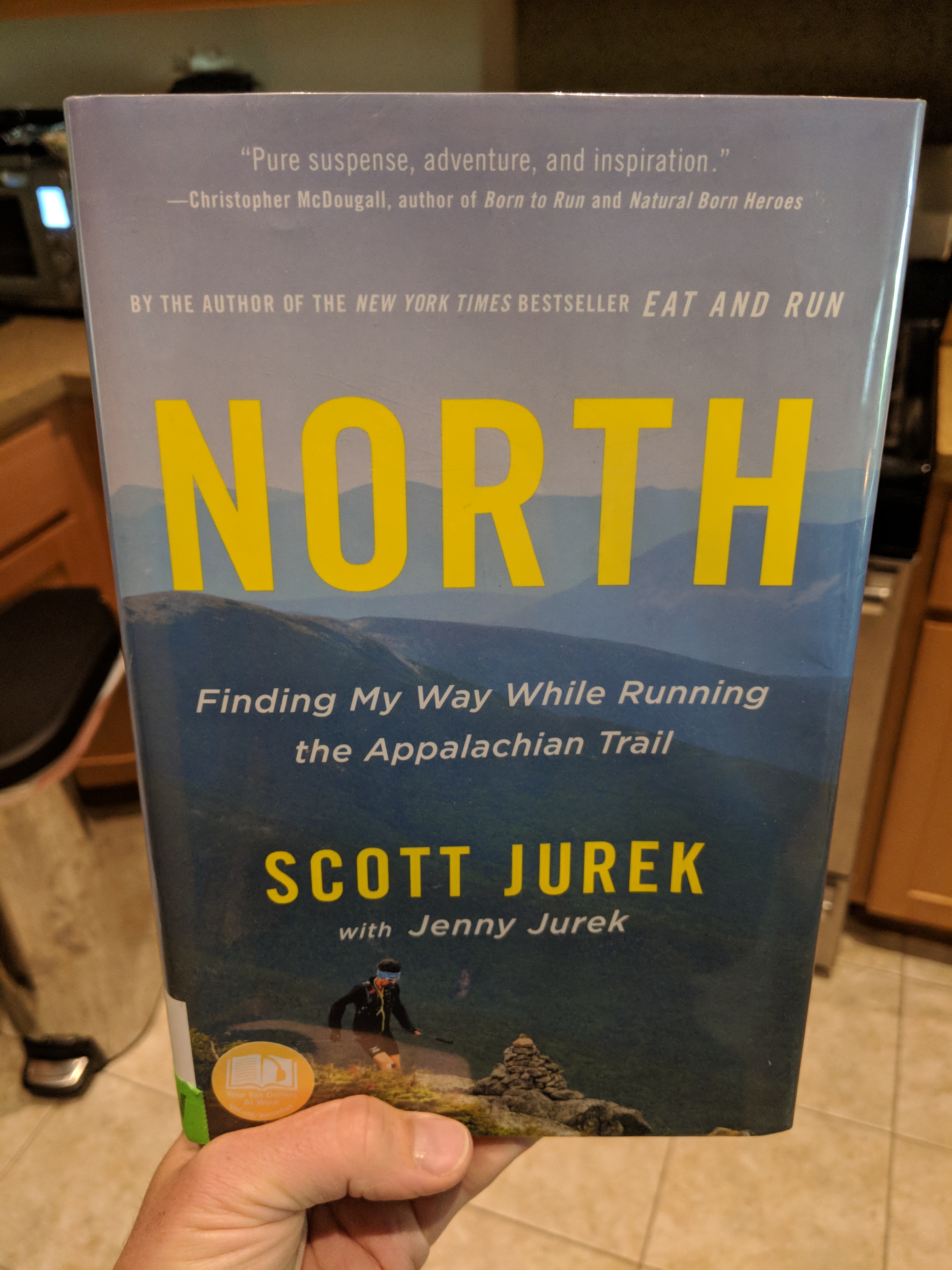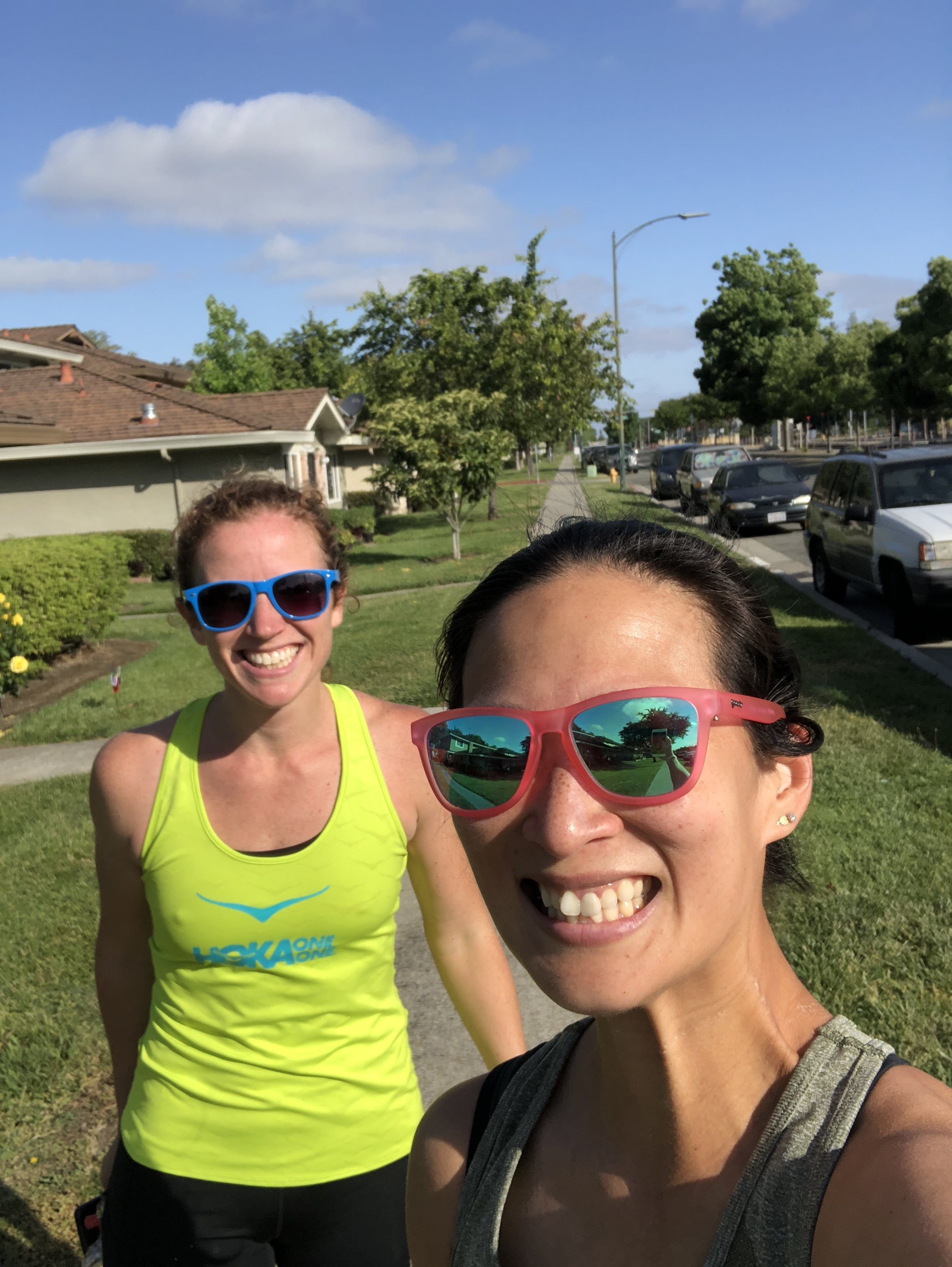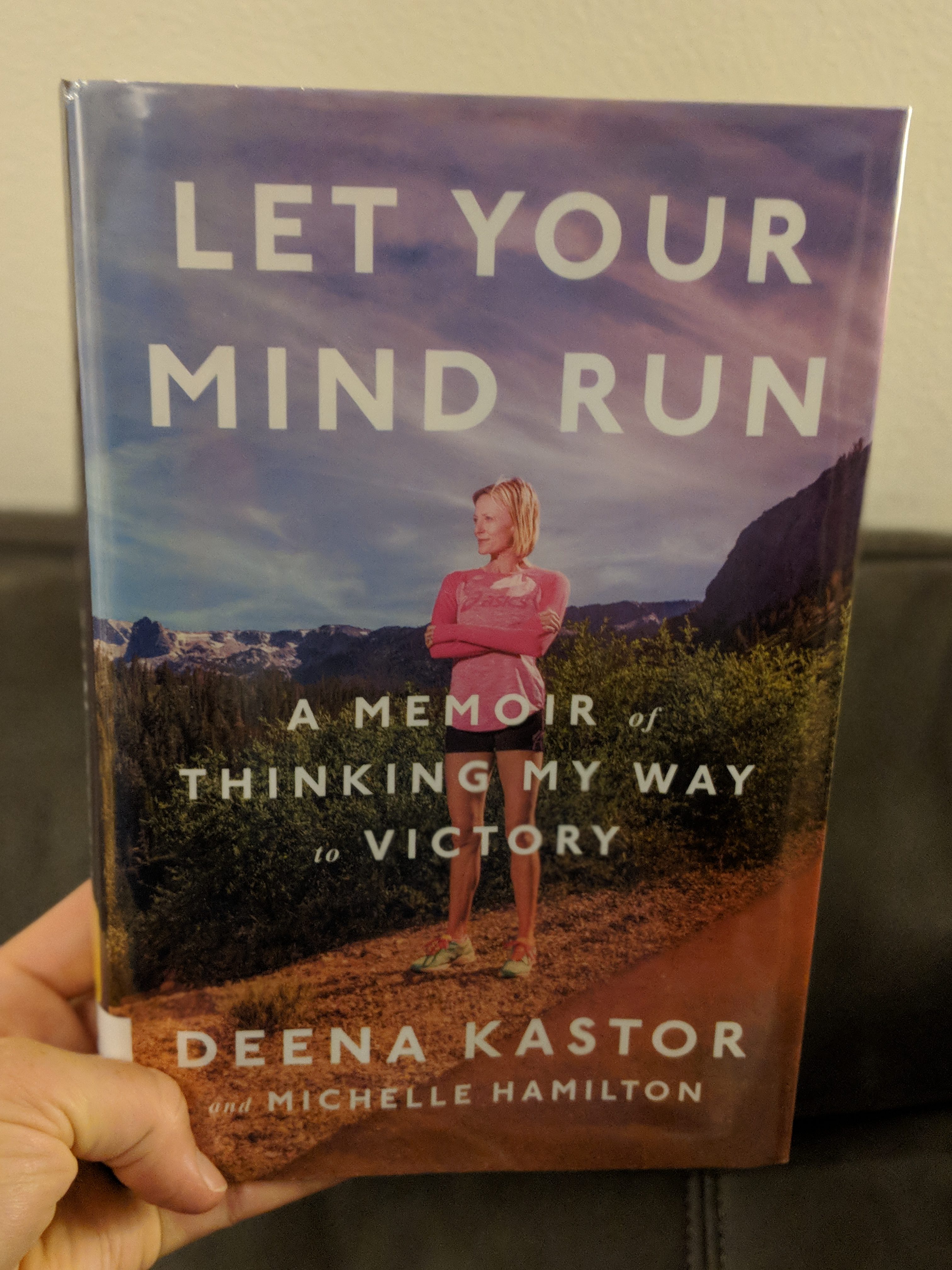North by Scott and Jenny Jurek: a book review
So much good stuff has come out recently in the running lit world, as I think I’ve said many times already this year, and adding to the already robust canon is Scott and Jenny Jurek’s North. Recently released in early 2018, the book chronicles Scott’s attempt at notching the FKT (fastest known time) on the northbound Appalachian Trail, starting in Georgia and ending in Maine, back in 2015.
If you’re a regular reader here, then it’s a safe assumption that you’re probably a runner and thus already know some of the background to this quest. If not, here’s a primer. Scott Jurek is one of the most fabled ultrarunners of all time. You can quickly scan his Wikipedia page to get a bird’s eye view of his many accomplishments, but suffice it to say that this guy has serious talent and the apparent drive to improve. A few years prior, he released his autobiography, Eat and Run, that allowed him to share his upbringing, how he came to the sport, how and why he came to veganism (which is a huge part of his life and identity) and the like. If you haven’t yet read Eat and Run, by the way, I’d definitely recommend it.
So, North. I won’t delve too deeply into the story and details here because it’s worth discovering for yourself, but it was a somewhat predictable and understandable storyline: professional ultrarunner, aging and beginning to think that his glory days are behind him, decides to do this utterly crazy-ass and grueling thing. Urging and supporting him along the way is his wife, Jenny, an accomplished climber and athlete in her own rite. Aside from Scott’s own personal reasons for taking on this enormous undertaking, it was a herculean effort from Jenny, too, to handle all the logistics and crewing to support her athlete (who happened to also be her husband, a combination that can compound an already tough effort into something far more complicated). Right before Scott’s FKT began, he and Jenny experienced some harrowing medical issues that made this already meaningful and life-centering act even more so. (No spoilers).

Even if you’ve never done an ultra before, if you’ve ever read stories and tales from the ultra community (or have seen any of the many documentaries about them), you know that ultrarunners are a completely separate breed of runner. It’s routine that ultrarunners will bring themselves to the brink repeatedly during the course of the race, and there are stories out there about runners who all but bring themselves to pounding on death’s door (with some ultimately actually doing themselves in). It’s with that knowledge in mind, then, that reading Scott’s and Jenny’s stories about the FKT makes comprehending this even more eye-opening and jaw-dropping because Scott was doing shit like that all day, every day, for more than 40 consecutive days. Maybe it’s heroic, or maybe it’s dumb; either way, it makes for some interesting reading.
Along the way, Scott introduces us to the key players in his FKT journey, and some of them you may recognize from Eat and Run. The personalities and friendships roll deep, and I found myself nodding my head in agreement while I was reading, thinking about my own running-based friendships and knowing how different people serve different roles: some as the always-optimistic cheerleader, others as the hard-ass drill sergeant, the guy who has all the answers, and the like. One type isn’t inherently better or worse than the other, but when you’re working hard toward realizing your goals, it’s helpful to have the variety at your disposal. I felt like I knew some of the characters by the end of the book, which is a testament to Scott and Jenny’s storytelling.
North is a quick read, and I think part of what contributes to its speed is the authorial voice of both Scott and Jenny. Scott is the primary storyteller in each chapter, but Jenny’s voice is also in the mix, typically at the end of each chapter (and briefly). Usually it plays out in such a way that Scott recounts his experiences for an almost-entire chapter, and then Jenny chimes in at the very end, sometimes elucidating and elaborating and other times refuting Scott’s memories. There’s always more than one side to every story, as we all know, and I can imagine that this is especially true when it comes to enormous endeavors like a FKT record. Scott’s experiences are going to inherently differ from those of Jenny (or Speedgoat, or whomever else), but the other voices still contribute in a meaningful way to the overall story. Honestly, I only wish that I would have heard more from Jenny since she played such a huge role in the effort.
For what it’s worth, I saw that Scott reads the audio version of the book, and while I think that’d be cool to hear — just like Deena did with her own book — I think I’d actually dissuade people from listening to the book simply because you just have to see the pictures from his adventure. The hard copy of the book includes probably close to 20-30 pictures of Scott, Jenny, and the gang at various points in the FKT quest, and the pictures really give credence to Scott’s descriptions of the varying and (sometimes horrifically) challenging terrain at different points in the AT. It’s one thing to read his description about grappling over huge slabs of rock or squeezing through narrow tunnels, but it’s another thing to actually see a picture of him actually doing it. Same goes for seeing his apparent devolution on the FKT; you can take him at his word when he describes how emaciated he became, but when you see it for yourself, I feel like we as readers can get a much fuller appreciation of how exhaustingly he taxed every ounce of his being to do this crazy-ass thing.
An aside: why. Why, why, why, why, why would someone do something like this? It’s a question that all of us runners can relate to, at least on some base level, because it’s a question that we’ve probably asked of ourselves and/or one that others have asked of us, too. As a hobby-joggin’ mom to two young kids, it’s basically unfathomable to me to try to imagine putting my life on hold for many weeks to go all-in on a running-related goal for which truly nothing is at stake but pride and ego. There are many times in North when shit hits the fan so hard, and flies so furiously, and I’m on the edge of my seat awaiting what will happen next, when I all but want to throw the book against the wall because I can’t understand why Scott would put himself through this “stuff” that was obviously hurting him (sorry for the vaguesauce; no spoilers here) … but I think that’s part of what makes this story so compelling and interesting.
The only comparison I can make, the only way I can even kinda-sorta understand it, relates to a gift someone gave me before my first marathon, a print-out of a quote from a professional marathoner. In it, the runner answers a reporter’s question about the marathon distance, and his response is basically along the lines of “if I have to tell explain the marathon to you, you still won’t understand. It’s beyond you and me.” It sounds like a cop-out answer, sure, but at the same time, when you’re undertaking some huge endeavor that seems to take on a life of its own, every rational part of you — or of others, who care about you deeply — may urge you to stop or to at least question your motives and intentions. You don’t, of course, and instead “keep showing up” — a la Des Linden — and you trust that your Holy Grail is worth it. I guess this is all to say that the fact that the Jureks even attempted to write about their FKT AT experiences is somewhat laudable in my book because we — people who weren’t there, people who didn’t do it with them — will never “get it.” Criticizing and questioning will forever be easier than understanding. I think if we at least try, however, we can be better for it.

I really enjoyed reading North, and to be honest, I was dubious that I would. I knew the ending because I had passively followed along when they were in the throes of it, so I didn’t think there would be much more to glean from their experiences. Dude. I was wrong. I would have liked to hear more about their life post-FKT quest (no spoilers), but I guess since the purpose of the book was to document their journey, it wouldn’t make sense to include much of a postmortem. I guess I’ll have to keep an eye out for some follow-up podcast interviews instead.
My opinion? North is an excellent summertime read because it’ll likely leave you feeling both empowered and inspired — what crazyass thing can I do?! — while also sucking you in to a man and woman’s adventure that became so much more than what they intended. Running, in general, is good for that, isn’t it? We start running for one reason, and then things change, and the miles become more than miles. It’s a pretty cool transformation. You may find yourself cheering for them (even if you know the outcome, as I did), celebrating their highs and damning their lows — of which there are many — and anxiously turning the page to find out what happens next.
